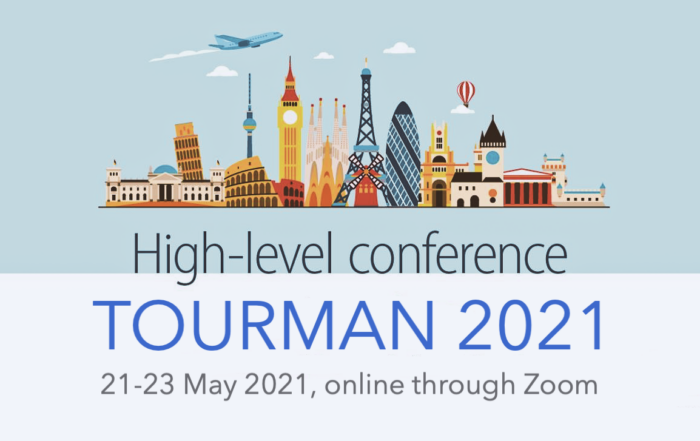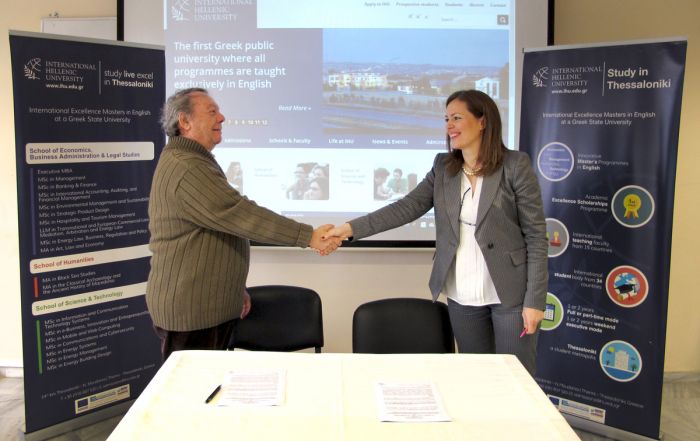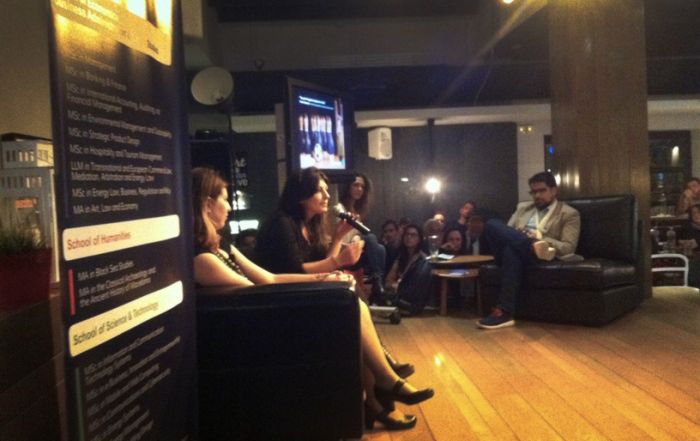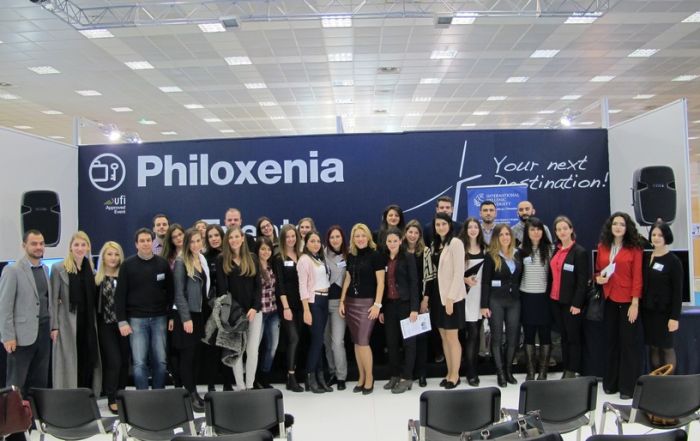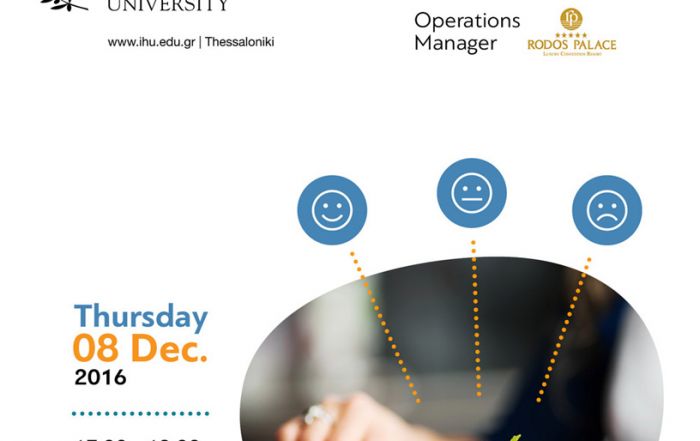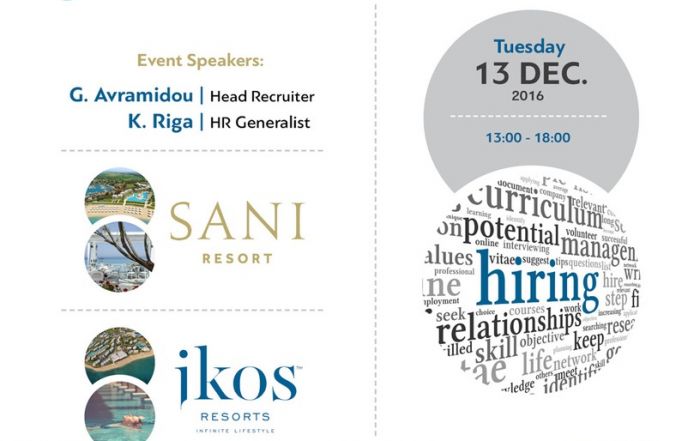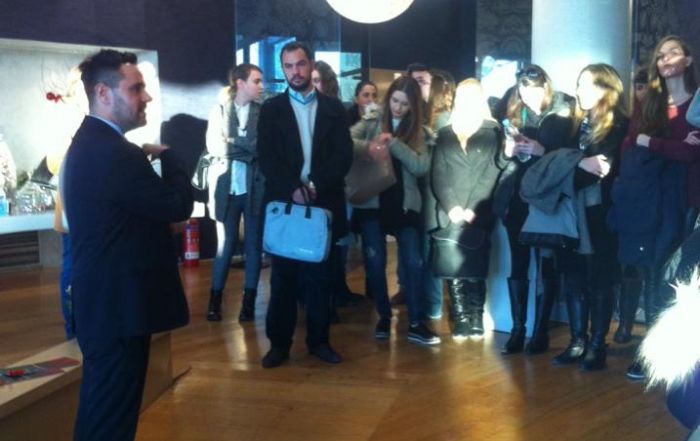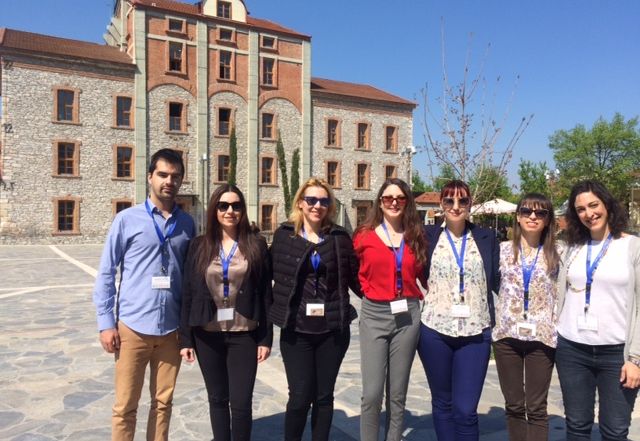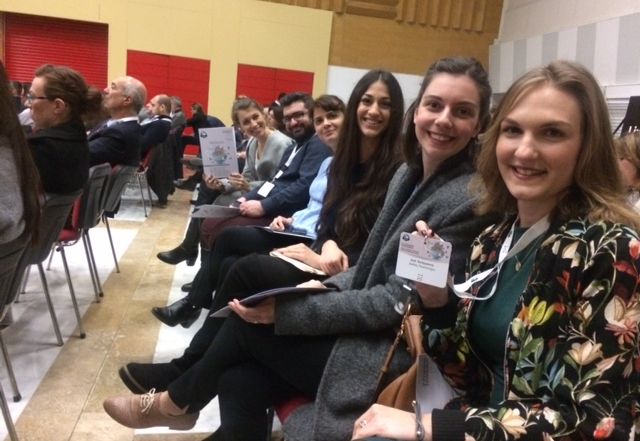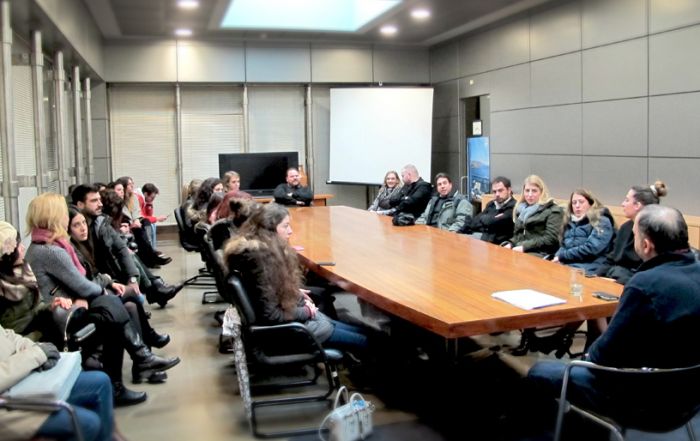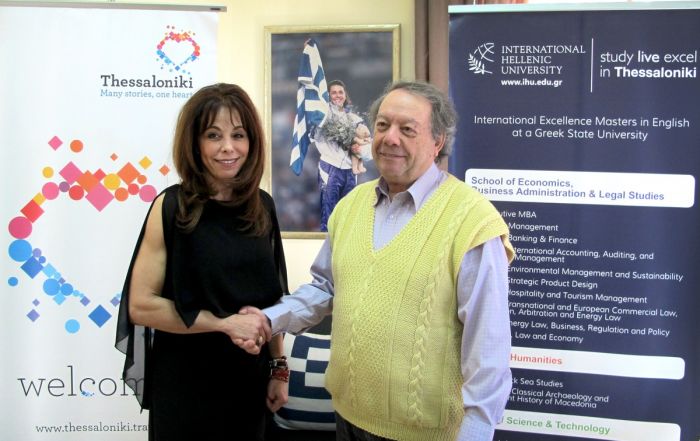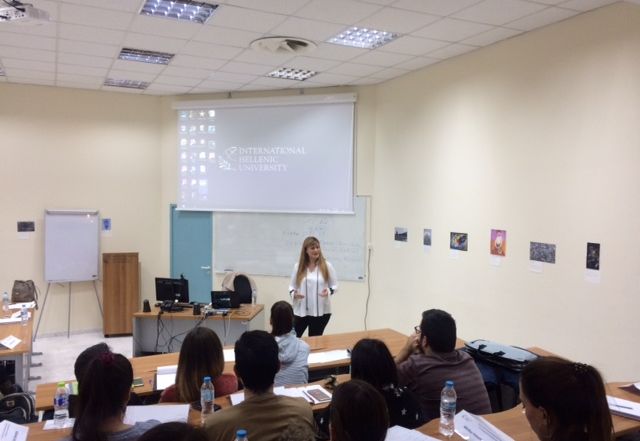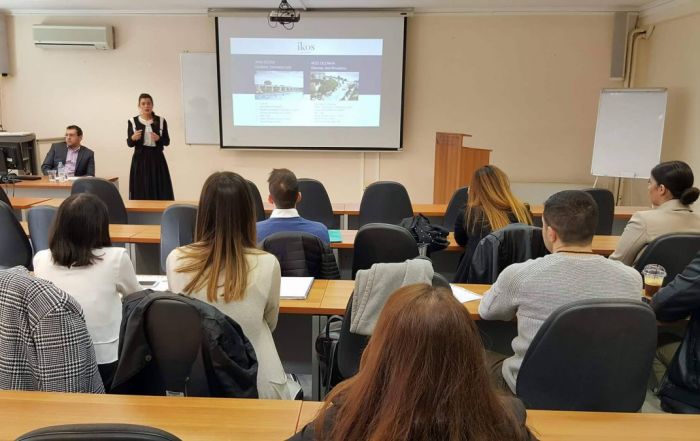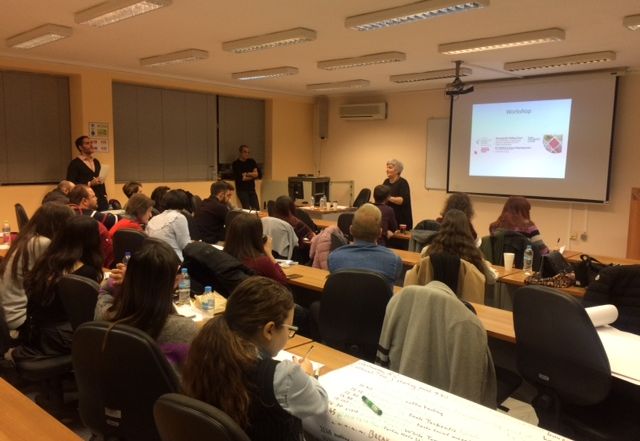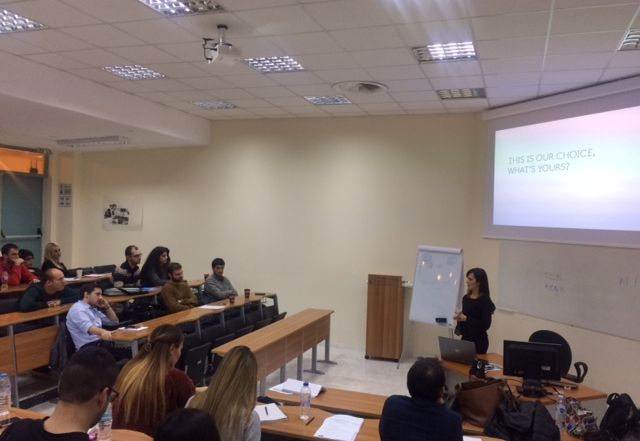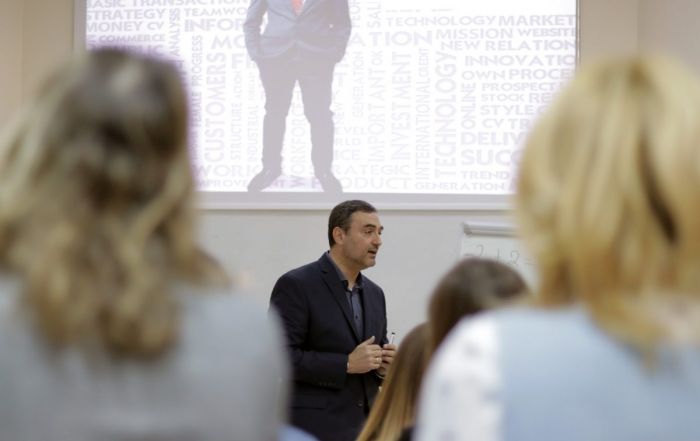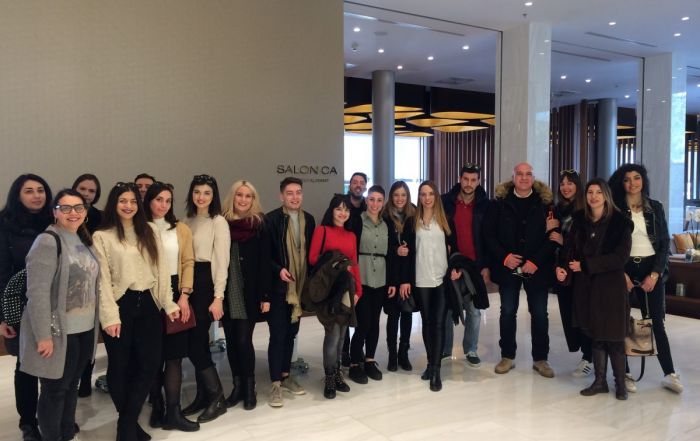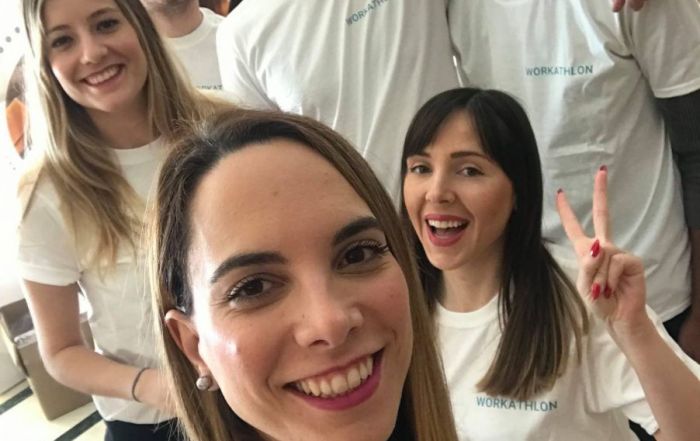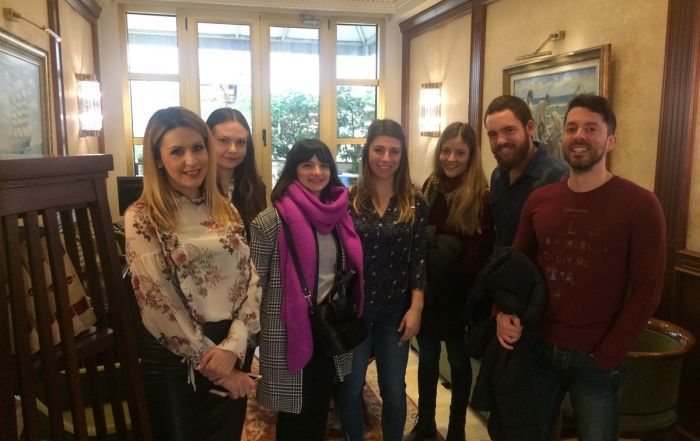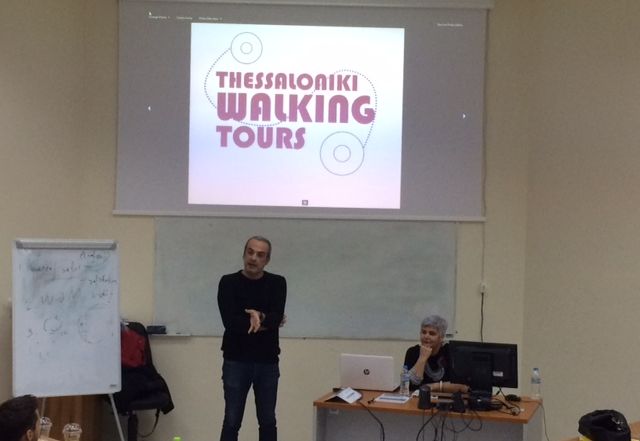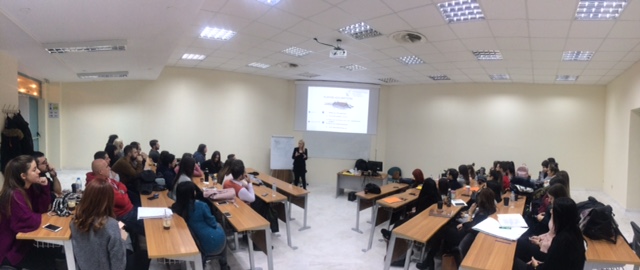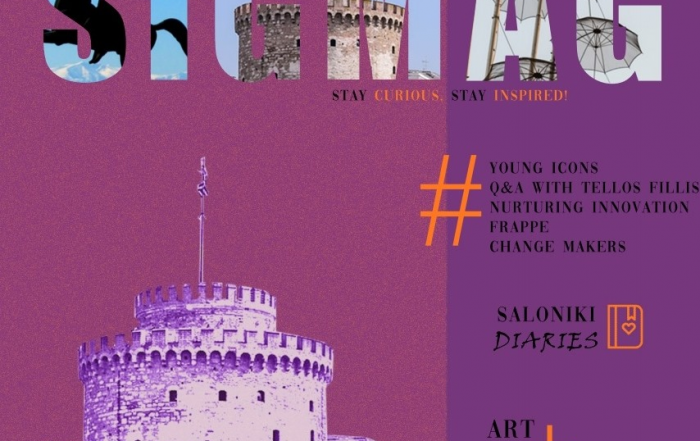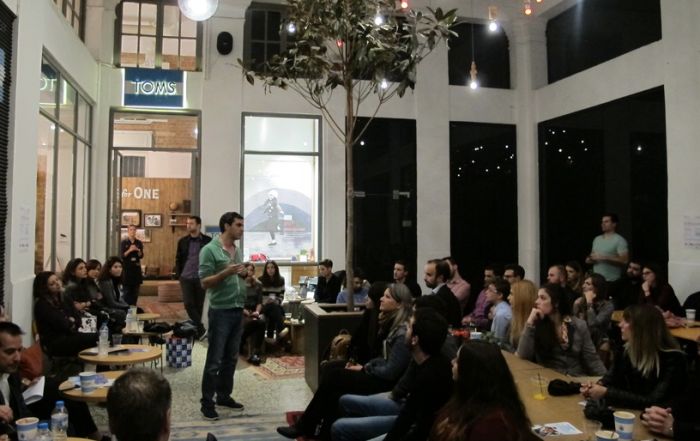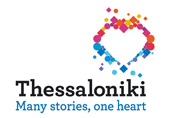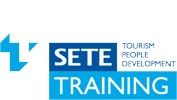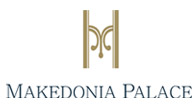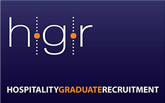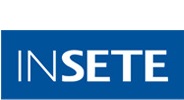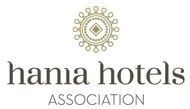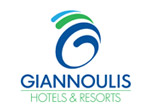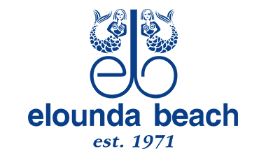Overview
The MSc in Hospitality and Tourism Management Programme is being offered by the School of Humanities, Social Sciences and Economics of the University Center of International Programmes of Studies of the International Hellenic University. The programme provides expertise in tourism with a practical orientation related to management and strategic issues in the fast-evolving tourism sector at the national and international level. Greece provides the ideal place to study Hospitality and Tourism and more specifically, Thessaloniki, which has been at the crossroads of many different cultures and a student metropolis. The courses are taught exclusively in English.
The IHU MSc in Hospitality and Tourism Management is designed to:
- Enable students to acquire the expertise and develop the skills for the acquisition and application of integrated solutions for the effective management of tourist enterprises in a highly competitive international environment with an emphasis on the management and economic activity of the tourist industry as well as environmental issues related to the tourism sector.
- Develop skills and expertise targeted at effective decision-taking and critical assessment of issues concerning management in the specific sector and also to provide practical orientation related to management and strategic issues in the fast-evolving tourism sector at the national and international level.
- Enable students to acquire the knowledge required for the strategic planning of enterprises and organisations concerning their compliance with environmental legislation; in general teach them how to minimize the environmental impact of their operation on the environment through voluntary activities.
- Enhance students’ self-awareness and self-confidence through the acquisition of knowledge and practical skills in disciplines related to tourism management.
- The terms with the core courses aim to lay solid analytical foundations in all areas related to hospitality and tourism. During the electives period, students are encouraged to deepen their knowledge and specialise in more specific areas, through four courses. A choice of a dissertation or a consulting project concludes the programme.
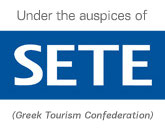
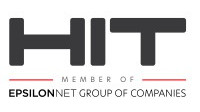


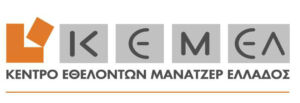

Some interesting points
Tourism | one of the fastest growing industries in the world
The tourism industry is becoming extremely important to most countries’ economic growth. Tourism creates and sustains jobs, brings new business, and contributes to the quality of life, which constitutes the key to development and prosperity. According to the World Tourism Organization, International tourism is expected to increase by 3.3% per year in the period between 2010 and 2030.
Greece | the ideal place to study Hospitality and Tourism
Steadily and traditionally recognized as one of the most popular leisure destinations, Greece provides the ideal place to study Hospitality and Tourism as you can find every type of tourist facility, a rich cultural heritage, some of the most stunning beaches in the world, and impressive mountain ranges. According to SETE, the Association of Greek Tourism Enterprises, and the World Travel &smp; Tourism Council, Greek tourism contributes 16.3% to GDP and is expected to employ nearly 850,000 people by 2024.
Thessaloniki | a World Heritage City with a large student community
Recognized by UNESCO as one of the most important cities in the history of mankind, Thessaloniki combines a fresh, dynamic outlook with a leading international reputation. Home to Greece’s largest student population, Thessaloniki qualifies as a student and cultural metropolis. Built between the sea and the mountain, Thessaloniki has been at the crossroads of many different cultures, constituting a truly cosmopolitan city in South-East Europe. The growth and diversity of the tourism industry has driven companies and organisations to seek out and hire skilled, dynamic, flexible and international-oriented managers.
Official Government Gazette:
Re-establishment PDF (in Greek)
Regulation PDF (in Greek)
Start date: November 2025
Application deadline: 31 July 2025 (non-Greek applicants) / 1 September 2025 (Greek applicants) or until places are filled
Campus: Thermi, Thessaloniki
Duration/Mode: 2 years part-time/weekdays evenings (available in distance learning mode)
Recognition and Partnerships: The programme runs under the auspices of the Greek Tourism Confederation (SETE) and forges partnerships with the Hospitality and Tourism Industry
Taught language: English
Entry requirements: An undergraduate degree from a recognised University
Language requirements: IELTS (academic 6.5 and above), TOEFL (IBT, 95 and above) or TOEIC (745 and above) score, or a recognised by the Greek State certificate of proficiency in English of C1 level
Fees: 3,900€ (total) Excellence awards for the academic year 2025-2026 (check the Fees & Financing section for details)
How to apply: Please follow the instructions at the applications page
Programme announcement:
ENG-GR
Dimitris Efthyvoulou
MSc in Hospitality and Tourism Management
-
I had the opportunity to extend my networking within the hospitality sector and explore possibilities for future cooperation.
Who can apply
Entry requirements: An undergraduate degree from a recognised University
Language requirements: IELTS (academic 6.5 and above), TOEFL (IBT, 95 and above) or TOEIC (745 and above) score, or a recognised by the Greek State certificate of proficiency in English of C1 level
Course content
The core courses
The core courses ensure that you acquire knowledge of practical concepts and attain skills directly relevant to your career aspirations.
First Year
| Teaching Hours and Credit Allocation: |
30 Hours, 6 Credits |
| Course Assessment: |
Coursework & Exam |
Aims
The aim of the course is to develop and increase students’ theoretical knowledge and practical skills on the operational and strategic policies of tourism management. Students completing this course will acquire the tools to understand the fundamental principles, philosophy and methods of tourism management with a specific focus on the current dynamically changing social, technological and economic era.
| Teaching Hours and Credit Allocation: |
30 Hours, 6 Credits |
| Course Assessment: |
Coursework & Exam |
Aims
The aim of the course is to enhance students’ knowledge and understanding of the concepts and principles of service operations management with a specific focus on their application in the hospitality and tourism sectors. Students completing this course will acquire the critical and analytical skills for applying the appropriate management tools and processes to ensure efficiency, effectiveness and quality standards in the contemporary hospitality and tourism sectors. Particular emphasis will be given on the understanding of the practical implications of service operations management concepts and their applicability in the day to day business life of hospitality and tourism enterprises. To achieve that, the discussion and analysis of case studies and examples of hospitality and tourism operators are incorporated in the instruction of the module.
| Teaching Hours and Credit Allocation: |
30 Hours, 6 Credits |
| Course Assessment: |
Coursework & Exam |
Aims
The aim of the course is to refer to general principles of financial management and to highlight the dimensions of organizational culture which are associated with financial knowledge and processes. Students completing this course will acquire the tools for financial decision making in the hospitality industry and for efficient financial management of hospitality enterprises.
| Teaching Hours and Credit Allocation: |
30 Hours, 6 Credits |
| Course Assessment: |
Coursework & Exam |
Aims
The aim of the course is the understanding of the principles and the concept of services marketing for tourism. Students completing this course will acquire the tools for a good command of the key elements of marketing across tourism organizations. Through case studies and contemporary examples from the tourism industry, students will be expected to apply the theoretical concepts discussed onto real-life marketing examples from the hospitality and tourism industry.
Second Year
| Teaching Hours and Credit Allocation: |
30 Hours, 6 Credits |
| Course Assessment: |
Coursework & Exam |
Aims
The aim of the course is to familiarize students with the importance of human resource management (HRM) in tourism enterprises. Students completing this course will acquire fundamental knowledge on issues concerning human resources development, selection and recruiting processes, motivation, employee relations, education and training.
| Teaching Hours and Credit Allocation: |
30 Hours, 6 Credits |
| Course Assessment: |
Coursework & Exam |
Aims
The aim of the course is to explore how students can use Information Communication Technology (ICT) in a strategic context by analyzing the new technological trends and by providing a solid basis for studying the impact of the ICT revolution on the tourism industry. E-Tourism revolutionizes all business processes, the entire value chain as well as the strategic relationships of tourism organizations with all their stakeholders. It additionally focuses on how Social media and Digital technologies are employed in airlines, hotels, travel agencies, tour operators and destinations management organizations. The course demonstrates that eTourism increasingly determines the competitiveness of the organization, and therefore, it is critical for the competitiveness of the industry.
| Teaching Hours and Credit Allocation: |
30 Hours, 6 Credits |
| Course Assessment: |
Coursework & Exam |
Aims
The aim of the course is the understanding of the special interest tourism, along with the ways to develop alternative tourism and the benefits associated with it. The course examines strategies that will first identify opportunities for alternative tourism in a region, integrate these activities with the region’s existing tourism capacity and design expansion with respect to the region’s and the particular activity’s capacities. Regarding special interest tourism the factors that have led to its development and connection with sustainability will be presented and the main providers will be mentioned (tour operators, specialist providers, packaged or non-packaged holidays providers, etc.).
| Teaching Hours and Credit Allocation: |
30 Hours, 6 Credits |
| Course Assessment: |
Coursework & Exam |
Aims
The aim of the course is to introduce students to the most important statistical tools used in business analysis along with business planning. The focus is on application and interpretation of the tools and results. The intention is not only to equip students with the practical skills to implement the necessary techniques, but to acquire the skills of discretion in choice of appropriate method and clarity in the interpretation of the output from such methods, together with extraction of the information of the highest importance to the business decision-maker.
The elective courses
The following list is indicative and continuously updated. Electives may vary from year to year depending on current interest and student demand.
Students choose four courses from the following list according to their interests and their current and future career orientation:
| Teaching Hours and Credit Allocation: |
16 Hours, 3 Credits |
| Course Assessment: |
Coursework & Exam |
Aims
The aim of the course is to enable students to gain knowledge about the theories and concepts of consumer behaviour and to understand the concept of customer experience and its impact on the competitive business environment.
Learning Outcomes
During the course students will:
- Demonstrate and apply an understanding of theories related to consumer behaviour and customer experience
- Know key concepts and definitions of customer experience management
- Demonstrate awareness of the factors that determine consumer satisfaction
- Critically evaluate evidence-based solutions to customer experience problems or issues.
- Evaluate the role of new technologies in creating valuable experiences.
Content
- Customer experience theory
- Customer service theory
- Customer satisfaction/dissatisfaction
- Consumer behaviour theory
- Service quality theory
- Consumer insight
- Complains handling
- Resolve conflicts and disputes with the client
- Relationship Marketing
| Teaching Hours and Credit Allocation: |
16 Hours, 3 Credits |
| Course Assessment: |
Coursework & Exam |
Aims
The aim of the course is to provide a good understanding of how to identify and exploit profitable opportunities. Another aim of this course is to provide an in-depth understanding of the types of funds available to companies through the capital markets. It also deals with the issues involved in structuring and executing capital-raising transactions.
Learning Outcomes
On completing the course students will be able to:
- Understand the process of structuring
- Manage the exit and assess
- Understand the use of venture capital and private
- Provide practical understanding of the principle features of the venture capital and private equity
- Understand the various methods available for raising
- Appreciate the complexities and practical considerations in raising debt and equity
- Understand the perspectives of corporate managers, shareholders, financiers and financial intermediaries of international
- Know the institutional framework underlying equity and debt offerings.
Content
- Fundamentals of private equity investment
- Structuring private equity investments
- Acquiring controlling interests
- Debt and Equity markets
- Raising Equity Capital
- Raising Equity through an initial public offering (IPO)
| Teaching Hours and Credit Allocation: |
16 Hours, 3 Credits |
| Course Assessment: |
Coursework & Exam |
Aims
The aim of the course is to examine the concept and scope of tourism policy in light of the alternative theoretical approaches, assumptions and typologies of tourism development. The course analyses tourism organizations, stakeholders and institutions, and their role in shaping, planning and implementing tourism policies. Case studies on issues of tourism policy are presented. Another aim of this course is to provide an in-depth understanding of the types of funds available to companies through the capital markets. It also deals with the issues involved in structuring and executing capital-raising transactions.
Learning Outcomes
During the course students will:
- Use theoretical and applied knowledge in relation to the exercise of tourism policy, as well as its potential role in the context of tourism and economic growth.
- Apply theoretical concepts of politics and development in practice.
- Understand the interrelationships between resource management and tourism planning and development
- Develop an understanding of the basic concepts of tourism planning for public and private sector community and regional tourism development
Content
- Tourism development: center and periphery
- Tourism policy at international, national, regional and local levels
- Tourism development and quality management
- Visitor management
- Tools and techniques in tourism planning development
- Case Studies of tourism policy
| Teaching Hours and Credit Allocation: |
16 Hours, 3 Credits |
| Course Assessment: |
Coursework & Exam |
Aims
The aim of the course is to investigate the relationship between culture and tourism, by examining the management of tangible and intangible assets. By completing the course students will be able to acquire knowledge and demonstrate an understanding of the relationship between culture and tourism, the concepts and theories of cultural heritage tourism, along with contemporary issues in the management of the cultural heritage.
Learning Outcomes
On completing the course students will be able to:
- Understand the conceptual partnership between cultural heritage and tourism
- Distinguish heritage tourism as a distinct and evolved form of travel
- Distribute actors, zones of activity, and motives for the participation in heritage tourism
- Understand the role of interpretation in cultural heritage sites and the relevance of such interpretation approaches to visitors
- Build an awareness of the interpretation of major cultural heritage sites available to visitors
- Become familiar with World Heritage Sites, heritage conservation, impacts of heritage tourism and heritage tourism product development
Content
- The market for cultural heritage tourism
- Assessing your destination’s cultural heritage resources
- Developing your strategic plan
- Managing your sites for sustainable tourism
- Strategies for preserving and protecting sites and resources
- Strategies for achieving a visitor experience that is memorable, educational, and entertaining
- Setting and enforcing quality standards
- How to improve your marketing efforts
| Teaching Hours and Credit Allocation: |
16 Hours, 3 Credits |
| Course Assessment: |
Coursework & Exam |
Aims
The aim of the course is to provide students with the means to develop high-level management skills and knowledge specific to the field of managing events and projects at all levels. Students will learn how to formulate event tourism strategies for specific destinations, specializing in the design and implementation of events, activities, tours, hotel accommodation, restaurants, excursions, conference venues, gala dinners and programme logistics. Specific topics will include event studies, bid preparation, public and corporate sponsorship, negotiations, and volunteer staff management.
Learning Outcomes
On completing the course students will be able to:
- Recognize the centrality of tourism in event management
- Promote events as a destination attraction
- Appreciate the role of events in creating and interpreting a destination’s sense of place
- Comprehend the economic impact of events for destinations
- Comprehend the role of a destination marketing organization as it relates to events
- Develop a management plan for a special event
- Develop sponsorships
- Understand the establishment of event organizations
- Volunteer recruitment and management
- Understand the importance of professionalism in event management
Content
- Event
- Sponsorships
- Volunteer recruitment
- Destination marketing
- Event revenue sources and risk management
| Teaching Hours and Credit Allocation: |
16 Hours, 3 Credits |
| Course Assessment: |
Coursework & Exam |
Aims
Strategic Analysis refers to the theory and practice of making decisions that shape the future of the firm. This course looks at the content and process of strategic decision making from the perspective of managers who are responsible for an entire business unit. These may be individuals who are acting in the capacity of Chief Executive of a company, divisional General Managers, or departmental heads. The course integrates the specialized areas of business administration by requiring the student to analyse and make strategical and operational decisions in the environment of a computer processed management simulation.
Learning Outcomes
During the course, students will:
- Develop the capabilities required for undertaking the responsibilities and tasks involved in strategic management
- Understand the fundamental tools, techniques, and practices of strategic management and examine their application to different organizational contexts
- be able to explore and assess business problems and challenges of managerial importance experiencing a virtual business environment
- develop decision-making process of from managerial, organizational, technological and human resource positions to acquire the skills of analytical and empirical research of existing organization and decision making processes, development and justification of organization’s improvement
- to develop decision-making process about the essence of strategies process for the modern organization as a whole and its individual units
Content
- An introduction to strategic management, with a focus on what is meant by the term “strategy”
- Strategic Analysis, tools and techniques (industry analysis, core capabilities, generic strategies and perceived use value).
- Practical experience applying theory, tools and techniques through case studies and assessment project
- Strategy as Competitive Positioning and as Resource and Knowledge Advantage.
- Business simulation game for running a company to create a ‘learning by doing’ environment
| Teaching Hours and Credit Allocation: |
16 Hours, 3 Credits |
| Course Assessment: |
Coursework & Exam |
Aims
This course concentrates on the unique challenges involved in the management of innovation and entrepreneurial ventures, whether in start-ups, small early stage entrepreneurial firms, or within larger well-established companies in the Tourism sector. It also aims is to develop an understanding of the process and context of entrepreneurship as well as to provide key concepts which will enable students to become more entrepreneurial themselves. The course will examine all issues of entrepreneurship using examples from the tourism industry, combining thus the appropriate theory with real world examples to give students a powerful framework for understanding every aspect of this vital business function. Students, working in teams, will assess the attractiveness of a real entrepreneurial opportunity and prepare a feasibility study that presents their conclusions through the submission and presentation of a business plan.
Learning Outcomes
During the course, students will:
- Explain the synergies between creativity, innovation, and entrepreneurship in the hospitality industry
- Describe the entrepreneurial perspective in the hospitality industry
- Evaluate the business environment and its importance to new business ventures
- Evaluate the legal requirements and process to start a new business
- Describe the marketing, financial, and human resource management of a small business\
- Identify the importance of growth and succession for a small business
- Identify entrepreneurial trends in the hospitality industry
- Prepare a business plan for their own hospitality enterprise
Content
- Introduction to innovation & entrepreneurship in the Tourism sector
- Evaluating opportunities
- The financial resources
- Creativity, Innovation and Ethics
- Developing the entrepreneurial plan
- Initiating entrepreneurial ventures
- Growth and exit
| Teaching Hours and Credit Allocation: |
16 Hours, 3 Credits |
| Course Assessment: |
Coursework & Exam |
Aims
The aim of the course is to provide students with a basic understanding and knowledge of the key concepts and analytical skills underpinning the effective management of projects in any industry sector.
Students will learn the responsibilities and essential tools and techniques required to successfully plan, manage, control and evaluate any major project in a complex environment. Students will develop the fundamental skills required of all project managers: critical reasoning skills, quantitative analytical skills and integrative skills, from both a theoretical and practical viewpoint.
Learning Outcomes
On completing the course students will be able to:
- Apply basic tools and techniques of project management in practice
- Write a sponsor and project requirements definition
- Construct a comprehensive project schedule
- Evaluate a project plan subject to time, cost and resource constraints
Content
- Project Management Growth
- Project Planning
- Project Stages and Sizing
- Resource and Task Management
- Scheduling Techniques
- Project Teams
- Pricing and Cost Control
- Contracts and Procurement
- Risk Management
- Stakeholder Management
- Project Evaluation and Reporting
| Teaching Hours and Credit Allocation: |
16 Hours, 3 Credits |
| Course Assessment: |
Coursework & Exam |
Aims
The aim of the course is to provide students with a basic understanding and knowledge of the key concepts of the travel industry with a comprehensive view of the growing transportation sector in a global context. Based on literature, professional bodies’ reports and a range of case studies students explore the historic development, range of destinations, tourist’s profiles, as well as the role of governments, and intermediates and key issues associated with the management of airline, shipping and transportation companies. Emerging trends and future predictions for these sectors are also examined.
Learning Outcomes
On completing the course students will be able to:
- Discuss the development of the transportation industry
- Define the profile of travelers
- Discuss how organisations and government policies affect travel and transportation
- Evaluate how key markets and social trends affect the travel industry
| Teaching Hours and Credit Allocation: |
16 Hours, 3 Credits |
| Course Assessment: |
Coursework & Exam |
Aims
The aim of this course is to introduce basic concepts in a selected tourism business-related topic and familiarize students with contemporary issues and trends. This topic can touch upon issues of management, finance, law, technology, ethics and safety, data protection policies, diversity-equity and inclusion and/or specific areas of the tourism industry such as sustainability, alternative tourism, Holistic hospitality, health & well-being and many more. The course will aid students to develop an understanding of contemporary issues and trends related to the tourism industry and how the external environment affects organizations and societies alike.
Learning Outcomes
During the course, studetns will:
- Get acquainted with a trending topic related to business and management
- Familiarize themselves with contemporary developments and practices of the business world and explore their application to different business contexts
- Gain the opportunity to analyze business problems and issues of managerial importance
- Develop skills in the selected contemporary topic
Content
- Understanding of the main concepts of a business-related topic which has become important in the fast-changing business world
- Analysis of its business issues of managerial importance
- External and internal factors that influence business units
- Evaluation of the contemporary topic and its effect on the business world
- Case Studies related to the topic
The Dissertation or Consulting Project
After the taught courses, students conduct an individual project on a subject relating to their studies and career. The topic is chosen by the student with input and advice from a faculty member, who acts as supervisor, working closely with the student. The dissertation is an individual 10,000- word paper of original scientific work, which upon completion is submitted for examination and approval by a three-member committee chaired by the student’s supervisor.
Alternatively, students may participate in a consulting project. Individually or in groups, students study an actual problem of a collaborating firm or organisation. Following analysis of the problem, the students prepare and present concrete and practical solution(s) in a report of min 7,000 words. https://www.ihu.gr/ucips/geninfo/consulting-project
The Programme Handbook
Handbook
Seminars
The IHU organises regularly workshops and business seminars. Some of these are offered exclusively to the IHU students and alumni. The purpose of the Seminars is to act as a link between the academic community and businesses by introducing you to the real world of business and showing you how the notions and techniques learnt in the classroom apply and materialize in the Greek business context. After all, you will get a better taste of many sectors of the market.
Schedule
The duration of the MSc in Hospitality and Tourism Management programme is 2 years part-time (from November to April). Teaching takes place on weekday afternoons. The attendance of lectures is compulsory. There is a limit of absences allowed (for more information please consult the Programme Handbook). The programme starts every November. The programme is available in distance learning mode.
Weekly course timetable
https://schedule.ihu.edu.gr/
Indicative Annual Programme timetable
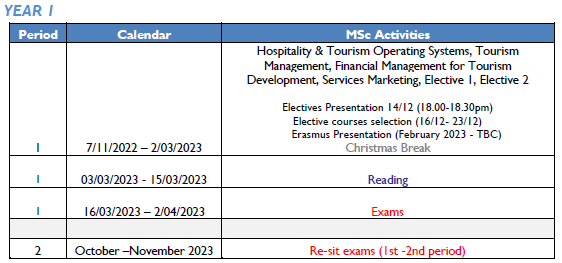

Strategic Partnerships with the Hospitality and Tourism Industry
As part of the MSc, students will have the opportunity to attend seminars or projects which include talks by Managers from well-known companies related to hospitality and tourism management issues. Also, students will participate in fieldtrips which include sessions with the Directors of Luxury Hotels and Museums and fascinating guided tours. Graduates will be able to meet face-to-face with employers to discuss internships, as well as full-time and part-time employment opportunities.
Fees & Financing
Fees
The programme fees for the MSc in Hospitality and Tourism Management is 3,900€. The amount is payable in four instalments at the beginning of each semester. The fees are also eligible for financing through LAEK – OAED programme.
Deposits
If you have been accepted to a postgraduate programme, you will need to make a payment of the deposit* of 500 Euros to secure your place. This amount will count towards the first instalment of your tuition fees. The deposit is non-refundable once you have commenced your studies at the IHU. Prior to that, a refund can be made but a 20% administrative fee will be retained. The deposit can be paid by bank transfer or bank draft. Credit card payments can be made through electronic banking (contact your Bank as handling fees may apply).
*For non-EU students, an advance payment of 2.000 Euros out of 3.900 Euros towards the tuition fees must be paid.
MSc in Hospitality and Tourism Management – Excellence awards for the academic year 2025-2026!
The MSc in Hospitality and Tourism Management announces the ‘Excellence awards’ for the academic year 2025-2026 by providing 25% tuition discount to candidates who hold an undergraduate university degree of 7.5/10 and above, and 40% tuition discount to candidates who are rated in the top 5% of graduates of the academic year of their graduation (written evidence from the graduating University is required). For more information please contact the Programme Manager on (+30) 2310 807526.
Scholarships
The School of Humanities, Social Sciences and Economics offers a number of scholarships, covering a significant proportion of the fees. These scholarships are competitive.
For more information click here
Programme announcement – Admissions
Next MSc in Hospitality and Tourism Management class starts in November 2025. Interested parties are invited to submit their online application by 31 July 2025 (non-Greek applicants) / 1 September 2025 (Greek applicants) or until places are filled, by following instructions at the applications page.
Programme announcement:
ENG-GR
Ideal career path
The programme is designed for those who are aiming for a career in travel, tourism or related industries. The programme supports students and professionals who aim for careers in:
- Tourism business
- Government agencies
- Museums/Heritage centers
- Travel agencies
- Event management
- Real estate
The Careers Office of the International Hellenic University provides students with focused events, access to career information, vacancy information, career fairs, Erasmus opportunities and internships.
Quality Assurance & Evaluation Reports
Quality Assurance Policy
Evaluation Reports
Location
The MSc in Hospitality and Tourism Management takes place in the facilities of the School of Humanities, Social Sciences and Economics of the University Center of International Programmes of Studies of the International Hellenic University in Thermi-Thessaloniki.
Contact
Postal address:
School of Humanities, Social Sciences and Economics
Department of School of Humanities, Social Sciences and Economics
University Center of International Programmes of Studies
14th km Thessaloniki – Nea Moudania 570 01 Thermi, Thessaloniki, Greece
Tel: +30 2310 807 526/523/530
Email: infoshsse@ihu.edu.gr















